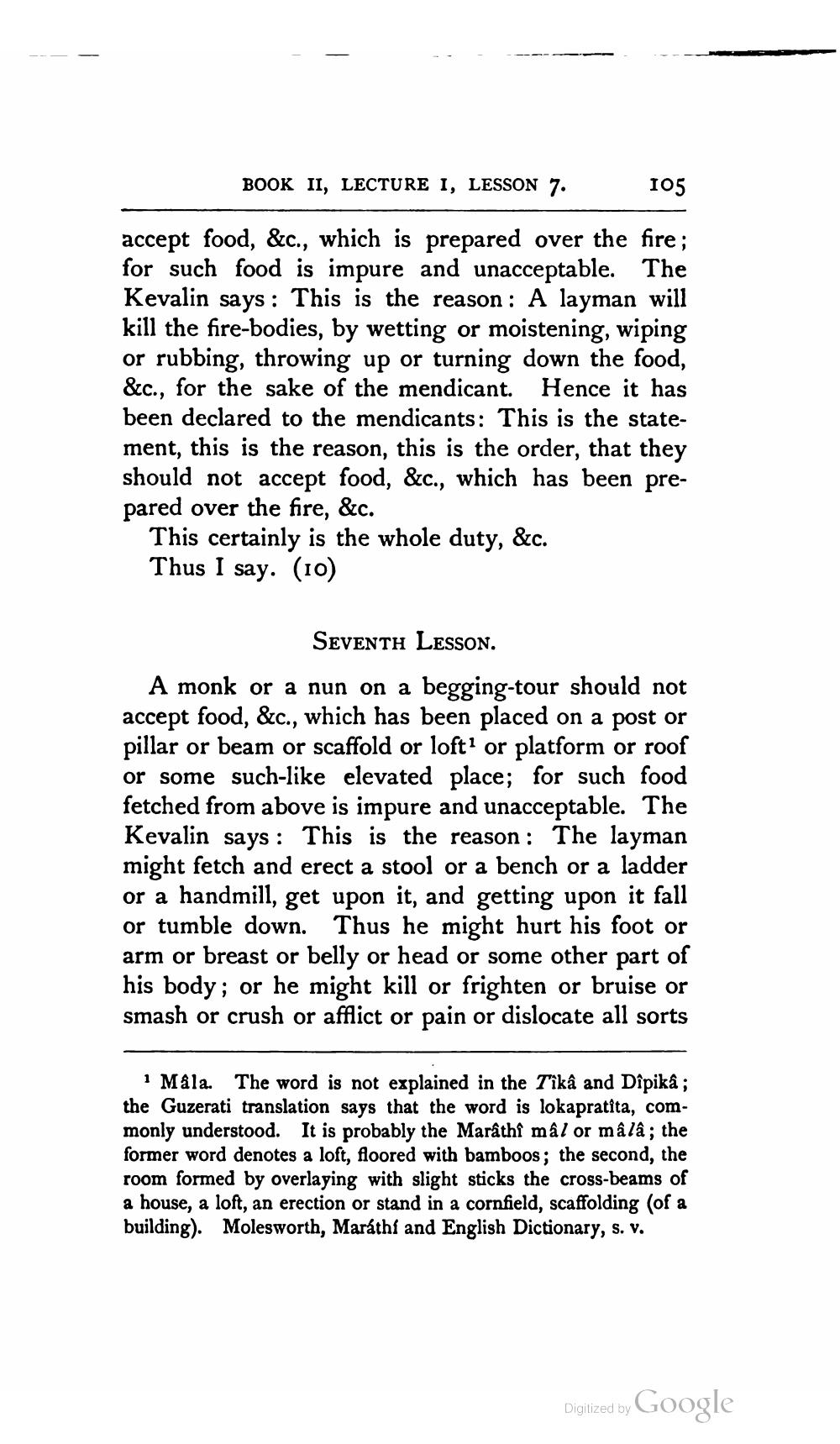________________
BOOK II, LECTURE I, LESSON 7.
105
accept food, &c., which is prepared over the fire; for such food is impure and unacceptable. The Kevalin says : This is the reason : A layman will kill the fire-bodies, by wetting or moistening, wiping or rubbing, throwing up or turning down the food, &c., for the sake of the mendicant. Hence it has been declared to the mendicants: This is the statement, this is the reason, this is the order, that they should not accept food, &c., which has been prepared over the fire, &c.
This certainly is the whole duty, &c. Thus I say. (10)
SEVENTH LESSON. A monk or a nun on a begging-tour should not accept food, &c., which has been placed on a post or pillar or beam or scaffold or loft? or platform or roof or some such-like elevated place; for such food fetched from above is impure and unacceptable. The Kevalin says : This is the reason: The layman might fetch and erect a stool or a bench or a ladder or a handmill, get upon it, and getting upon it fall or tumble down. Thus he might hurt his foot or arm or breast or belly or head or some other part of his body; or he might kill or frighten or bruise or smash or crush or afflict or pain or dislocate all sorts
Måla. The word is not explained in the T'îkâ and Dîpika; the Guzerati translation says that the word is lokapratita, com monly understood. It is probably the Marathi mâl or mâlâ; the former word denotes a loft, floored with bamboos; the second, the room formed by overlaying with slight sticks the cross-beams of a house, a loft, an erection or stand in a cornfield, scaffolding (of a building). Molesworth, Marathi and English Dictionary, s. v.
Digitized by Google




